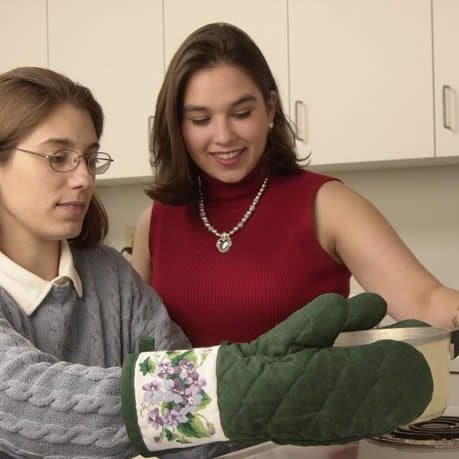OTA Fieldwork for Educators: Level 1
“The goal of Level 1 fieldwork is to introduce students to fieldwork, apply knowledge to practice, and to develop understanding of the needs of clients.” (ACOTE 2018)
Based on the discretion of the fieldwork educator, Level 1 experiences can include a variety of opportunities for clinical observation and hands-on practice (when appropriate and with direct supervision).
The Occupational Therapy Assistant program at ACC must “ensure that personnel who supervise Level 1 fieldwork are informed of the curriculum and fieldwork program design and affirm their ability to support the fieldwork experience. This must occur prior to the onset of the Level 1 fieldwork. Examples include, but are not limited to, currently licensed or otherwise regulated occupational therapists and occupational therapy assistants, psychologists, physician assistants, teachers, social workers, physicians, speech language pathologists, nurses, and physical therapists.” (ACOTE, 2018)
ACC recommends that Level 1 students receive direct supervision when engaged in any hands-on patient care techniques. Level 1 students are novices; they are not yet ready to implement hands-on techniques independently. To access AOTA’s Student Supervision resource page which includes guidelines for Medicare requirements, click here.
Each fieldwork educator (FWE) will be sent an email notification providing the name, phone number, and ACC email address for his/her assigned student. The student will be instructed to make initial contact with the FWE and can then provide additional personal information as requested by the FWE or required by the site.
The OTA program has developed objectives for Level 1 fieldwork experiences, in conjunction with the ACOTE standards for fieldwork experiences. Fieldwork sites are encouraged to incorporate site-specific objectives into the fieldwork program. Students should be provided a written copy of any additional learning objectives created by the fieldwork site.
Screening and Evaluation
The student will:
- participate in gathering relevant information from the medical records as directed.
- observe and practice interview techniques of patient and family.
- observe client performance during site specific screenings or evaluations, and
- in collaboration with the fieldwork educator, participate in the identification and prioritization of client strengths and weaknesses which may impact occupational performance.
- if direct observation is not available, the student can meet the objective by reviewing a completed evaluation
- state and prioritize problem areas and skills (using the OT Practice Framework as a guide) based on evaluation results in preparation for short term goal development, in collaboration with the fieldwork educator.
Intervention and Implementation
The student will:
- participate in the selection of interventions that address the identified goals, in collaboration with the fieldwork educator.
- assist in treatment implementation with the direct supervision of the fieldwork educator.
- participate in the identification of activity adaptations or environmental modifications, in collaboration with the fieldwork educator, that reflect the changing needs of the client.
- participate in short term goal development and updates, in collaboration with the fieldwork educator, based on observed client performance using the OT Practice Framework.
During treatment implementation, the student can be expected to assist the fieldwork educator with the following activities, under direct supervision: goniometry, manual muscle testing, lifts, transfers, a variety of inhibitory/facilitory techniques such as brushing and vibration, positioning, feeding, simple splinting, use of adaptive equipment, ADLs, teaching a variety of craft activities.
Communication and Documentation
The student will:
- utilize OT terminology that is consistent with OT Practice and the Occupational Therapy Practice Framework in both written and oral forms of communication.
- consistently identify him/herself as an OTA Student from Austin Community College.
- verbalize the role of occupational therapy (specific to the area of practice) and compare and contrast the responsibilities of an OTR with an OTA in the setting.
- practice writing SOAP notes or other facility specific style of documentation on 2-3 clients each day.
Professional Literature
The student will:
- collaborate with the fieldwork educator to identify an area of interest for further research by the end of week two.
- conduct a professional literature search to locate information related to a specific condition, intervention, or current trend specific to the setting by midterm.
- summarize and present his/her findings to the fieldwork educator for discussion by the end of the experience.
Based on his/her discretion, the fieldwork supervisor may also request that the student prepare additional assignments as needed to enhance his/her learning. This may include case studies, additional readings, a specific project, etc.
Intervention and Implementation
The student will:
- demonstrate active participation in the learning process.
- demonstrate adherence to HIPAA regulations by maintaining client confidentiality.
- demonstrate adherence to safety regulations, using sound judgment in regards to personal, environmental, and patient safety.
- demonstrate adherence to the OT Standards of Practice, Occupational Therapy Code of Ethics, and OT Practice Framework while engaging in fieldwork activities.
- demonstrate professional behaviors that are consistent with site (and academic institution) expectations.
- demonstrate appropriate interactions with clients, families, the fieldwork educator, and members of the interdisciplinary team.
- demonstrate an active role in the supervisory process by giving, receiving, and responding to feedback in a professional manner.
- Structuring the Level 1 Fieldwork Experience Development Worksheet
- Level 1 Fieldwork Evaluation – The evaluation will be delivered to the FWE by the student.
Search the Health Sciences Website
Occupational Therapy Assistant Updates
OTA Program Application Period for Fall 2023
The Occupational Therapy Assistant Program application period for Fall 2023 will open December 1, 2022. Please visit the Application Process page to see the latest admission requirements.
Read moreTEAS Testing Requirements for Health Sciences Applicants
A TEAS Exam score is required to apply to the following programs: Dental Hygiene, Occupational Therapy Assistant, Radiology, and Vocational Nursing.
If you are not applying to one of the programs above, then you are not required to take the TEAS Exam at this time. Please refer to the Application Process page for your program to see all application requirements.
Read moreOccupational Therapy Assistant Program Applications
To apply to the Occupational Therapy Assistant program, please upload your supporting documents to CastleBranch using code UL73im. To learn more, visit the Application Process page.
Read more

